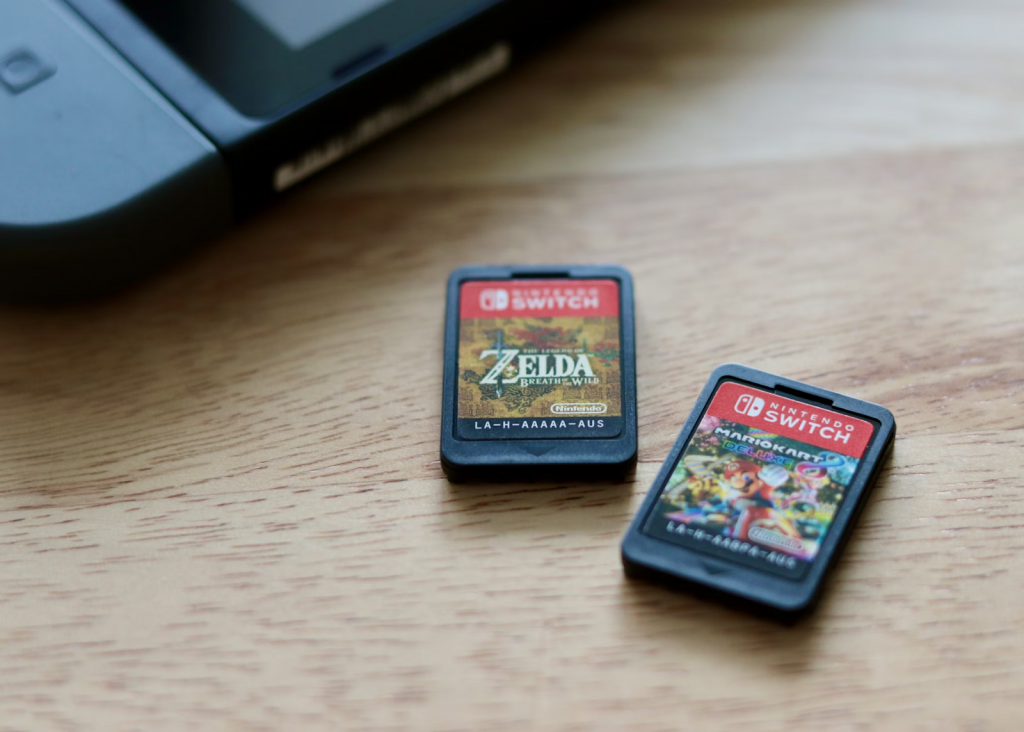Interest in retro PC gaming has been resurgent in recent decades as gamers seek out the most memorable moments of the past. Nostalgia and the desire for the simplicity and challenge of old games are not only appealing to children of the 80s and 90s, but also to younger generations who now have easy access to old classics. The importance of retro games lies not only in entertainment, but also as an important piece of video game history. Generation Z, for example, is increasingly returning to retro consoles to experience the golden age of gaming, which also brought many technological innovations. One example is Luke Malpass, who founded a successful business restoring retro consoles and building a community, proving that old-time games still fascinate audiences today.
The History and Evolution of Retro PC Games
The history of retro PC games dates back to the 1980s, when the first computer games began to appear on the market. At that time, they were built on the simplicity of gameplay and minimalism of graphic presentation. Such classic games as Pac-Man and Tetris quickly spread worldwide and fundamentally shaped the video game industry. Over the decades, technological developments in PC games have also greatly changed the gameplay, graphic presentation and musical compositions, allowing the creation of more advanced, complex worlds.
For example, the Fallout series, which launched in 1997, became a major milestone in post-apocalyptic role-playing games and has continued to influence the genre’s development ever since. The newer generation games, however, are much more sophisticated and visually advanced, thanks to modern hardware. Such historical games have since gained cult status, and those who were fans of them can now re-discover them through modern consoles and PCs.
Iconic Retro PC Games Everyone Should Know
In the world of retro PC games, there are many classics that have become cornerstones of video game history. One of the most famous of these is Pac-Man , which was released in 1980 and has since become one of the best-selling video games of all time, with 7 million copies sold. The game’s simple gameplay and easy-to-learn rules have won it a huge fan base, making Pac-Man one of the most recognizable characters in the world.
Tetris has also been one of the most influential pieces in video game history since its debut in 1984. The logic puzzle game has infected many new generations with its simple but fun gameplay and is still available on various platforms today.
Super Mario Bros. , released in 1985, is also a milestone in the platformer genre. The game follows Mario’s adventures as he tries to rescue Princess Toadstool from the evil Bowser. The game had a significant impact on the development of platform games and remains a defining figure in video game culture to this day.
And The Legend of Zelda has become a flagship of adventure games since its release in 1986, helping to establish and popularize the concept of open-world games.
How to Play Retro PC Games Today?
Retro PC games are now available not only on old consoles, but also on modern platforms and emulators. Platforms like Poki and RetroGames.cc allow you to play classic games online for free directly from your browser, making them accessible to those who don’t own the old consoles.
The availability of retro games online has increased significantly in recent years, thanks to the development of emulators and the digitization of games. Emulators allow old games to be run on modern computers, minimizing graphical errors and slowdowns.
For example, on the RetroGames.cc platform, users can play a variety of classic games, such as Super Mario Bros. , Pac-Man , and Tetris . The platform not only provides an entertaining experience, but also allows players to look back on the past of video games while enjoying them through modern browsers.
The Influence of Retro Games on Modern Video Games
The influence of retro games on the design and mechanics of today’s video games is undeniable. Early classics like Pac-Man and Super Mario Bros. offered players clear rules and easy-to-understand gameplay, which has become a fundamental inspiration for today’s games. Modern games, especially those from the indie scene, often draw inspiration from the simplicity and fun mechanics of retro games. Indie developers are happy to combine retro aesthetics and pixel-art graphics with modern game development techniques to offer fresh, yet nostalgic experiences.
Nostalgia plays a particularly important role in the player experience and game development. Reimagining and reviving retro games can help players connect with previous generations of video games while offering fresh and innovative experiences for modern audiences. This effect is exemplified by Shovel Knight , which combines the classic style of 8-bit platformers with today’s technology to create an experience that appeals to both old and new players.
The Future and Sustainability of Retro Games
The importance of preserving retro games is an integral part of video game history. Protecting digital heritage can help ensure that classics from the past remain accessible to future generations. Video games are not only entertainment media, but also documents of technological and cultural development, so their preservation is crucial for the future. The digitization and archiving of retro games continues through global initiatives such as video game archives and online platforms that help maintain the accessibility of old games.
Modern technology is playing a big role in the revival of retro games. Emulators, cloud gaming platforms, and digital remasters are all helping to make classics accessible and easy to play on modern computers and consoles. The Spectrum console, which brings classic ZX Spectrum games back to modern platforms, is an example of how once-famous but now-forgotten systems can be breathed new life into. Initiatives like these ensure that retro games continue to live on and be enjoyed by future generations.
Conclusion
Retro PC games play a prominent role in the history and culture of video games. They not only provided an entertaining experience for previous generations, but also laid the foundation for the development of modern games. The simple gameplay, challenges, and fun mechanics that characterized retro games still have a living influence on the video game industry today, especially in the world of indie developers and modern platformers.
Nostalgia also plays a role, as gamers often seek out the gaming experiences of the past in today’s world, while modern technology provides new opportunities to revive retro games. Emulators, digital reboots, and online platforms allow classics to be brought back to life, made accessible to today’s audience, and discovered by a new generation. Retro games therefore not only represent the past, but also shape the future, connecting the past with current technological developments.

